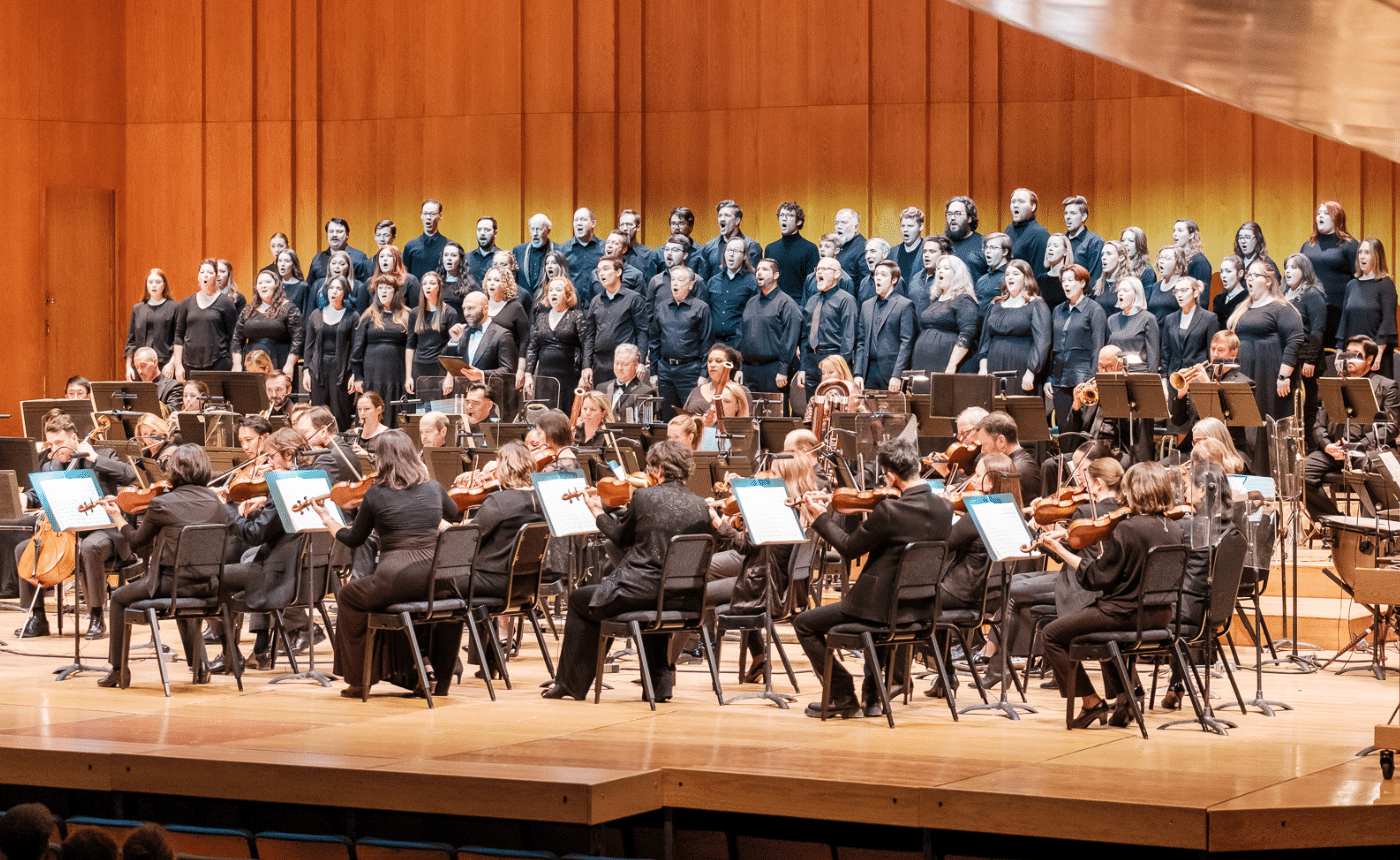Prokofiev – Selections from Romeo and Juliet, op. 64
Instrumentation: piccolo, 2 flutes, 2 oboes, English horn, 2 clarinets, bass clarinet, 2 bassoons, contrabassoon, 4 horns, 3 trumpets, cornet, 3 trombones, tuba, timpani, glockenspiel, tambourine, cymbals, snare drum, bass drum, maracas, triangle, tenor saxophone, harp, piano/celesta, strings.
THE COMPOSER – SERGE PROKOFIEV (1891-1953) – Prokofiev returned with his family to Soviet Moscow in the summer of 1936. One wonders whether he might have done otherwise had he been present there a few months earlier, when the government made their “expectations” of Soviet artists clear by way of a scathing critique of Dmitri Shostakovich. The Pravda review of the opera Lady MacBeth of Mtsensk scared everyone except Prokofiev, who was conveniently away on tour.
THE MUSIC – After missing the fury of that January storm, the composer’s first years back in Moscow were marked by judiciously good behavior. Like most of his colleagues, he busied himself with state-sanctioned projects. Few of Prokofiev’s works during the period can be viewed as non-political but the ballet Romeo and Juliet is one of them. He had first planned to collaborate with the Leningrad Theatre but when that institution was renamed for the assassinated local Party leader Sergey Kirov, a reconfiguration of the Theatre’s administration also took place. The project was soon taken up by the Bolshoi in Moscow and Prokofiev spent the middle months of 1935 completing the piano score. The ballet scenario was cast in four acts, encompassing over fifty separate dance pieces. The Bolshoi staff liked what they heard but the theatre dropped the ballet portion of their operation in 1936 so Prokofiev was forced to create a concert suite to get his music a public audience. The full ballet did not receive a Russian production (it was premiered in the Czech city of Brno) until 1940 and this took place, ironically, at the Kirov in Leningrad. It is fitting that the suite was heard first since it is by the composer’s three concert collections that his greatest orchestral score is best known. These days, conductors often create their own suites from among the available options and the brilliance of Prokofiev’s inventiveness suffers not at all from this variety.
THE WORLD – Britain’s King George V died in 1936 and son and heir Edward would later abdicate so he could marry American Wallis Simpson. Notable publications that year included Faulkner’s Absalom! Absalom!, and Margaret Mitchell’s Gone with the Wind.
THE CONNECTION – Music from Prokofiev’s Romeo & Juliet Suites is played quite often on Utah Symphony programs. The most recent Masterworks performance was in 2010 under Michael Stern.











